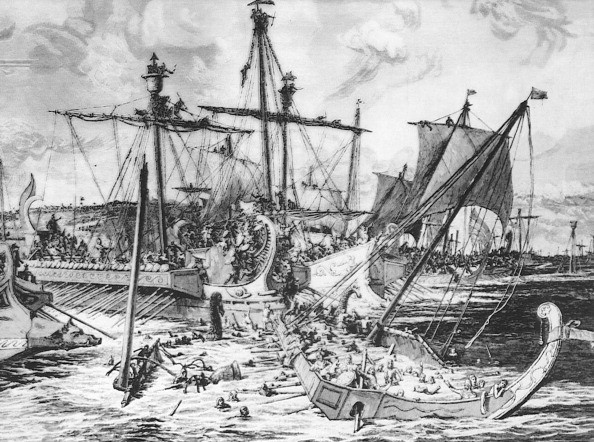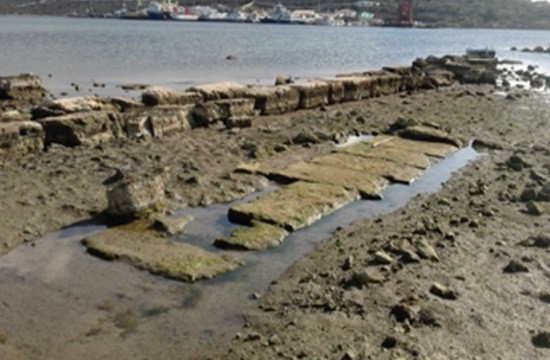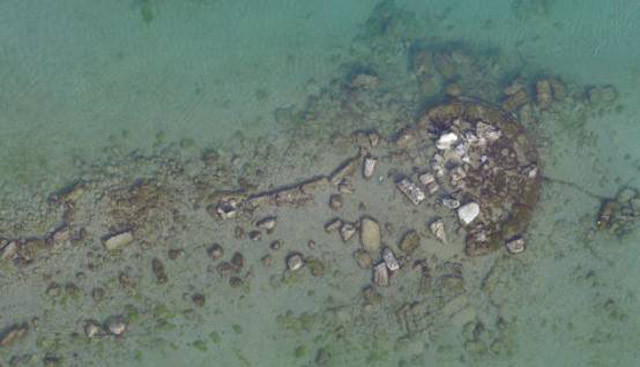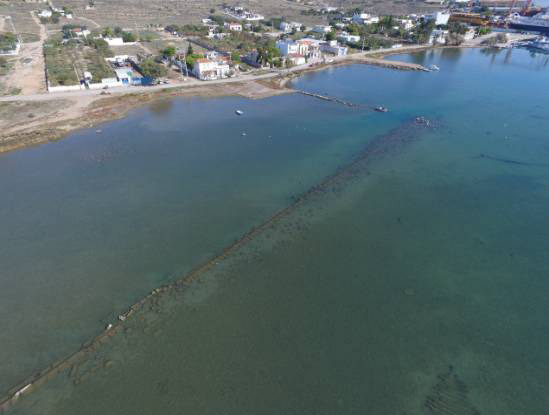Ancient Greece: 2,500-year-old sunken port central to the Battle of Salamis emerges
The battle of Salamis is the first large naval battle recorded in history.

Archaeologists in Greece have discovered the remains of an ancient port, where Greek naval forces may have gathered before engaging in the historic battle of Salamis with Persian troops in 480 BC.
The battle of Salamis is the first great naval battle recorded in history and one of the most important ever fought by the ancient Greeks. Taking place during the Greco-Persian Wars, it is remembered as a real exploit on the part of Greek naval troops, as they managed to defeat a much larger Persian fleet.
In 480, the Greeks were struggling against the Persians. Xerxes, the Persian King, had succeeded in occupying much of Greece. It had a fleet of more than 800 powerful galleys while the Greeks only had about 370 warships, known as triremes.
However, as the battle looked like it was going to be lost, Greek commander Themistocles designed an ingenious strategy. He lured the Persian ships in the strait of Salamis, where their large size prevented them from manoeuvring easily.

In the end, the Greeks defeated the Persians, sinking about 300 of their ships, while only losing about 40. King Xerxes had to postpone any future attacks, giving all Greek cities the time to unite against him and beat him for good.
The remains of a port
Archaeologists working on the eastern coast of the island of Salamis have now identified the remains of an ancient port – which probably was an important commercial and navy port.

Using aerial photography, photogrammentric processing, and topographical and architectural documentation, the archaeologists identified ancient harbour structures and fortifications, alongside the remains of other buildings.
The port of Salamis would have been the largest of the Athenian state, after the three ports of Piraeus Kantharos, Zea and Munichia.
In a statement, the Greek Ministry of culture commented: "It is the commercial and probably war port of the classical and Hellenistic period of the city-state of Salamis. It is also the region where a portion of the united Greek navy had gathered on the eve of sea battle in 480 BC.

A number of artefacts were also recovered, including numerous fragments of amphorae and other vases from various periods, as well as a copper coin from the 4th century B.C. Found in the Ambelakia Bay, these objects gradually sink and emerge due to changes in sea levels.
The finds were the result of in-depth excavations and underwater archaeological surveys which started in November and December 2016, as part of a three-year program funded by the British Horon Frost Foundation (an organisation which supports Maritime Archaeology in the eastern Mediterranean Sea).
© Copyright IBTimes 2025. All rights reserved.






















